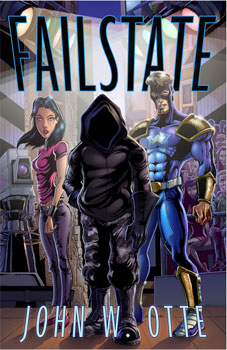There are heroes…and then there are superheroes. There are tales…and then there are fairy tales. What do superheroes and fairy tales have in common? They’re both awesome subgenres of speculative fiction, of course! And we’re going to dig into them today.
Superheroes
 The subgenre of superhero fiction falls under the fantasy side of speculative fiction, but it can really flit into the science-fiction genre depending on the world in which it takes place. Superheroes took off in the comic book world. Actually, they originated there and then bled into novels.
The subgenre of superhero fiction falls under the fantasy side of speculative fiction, but it can really flit into the science-fiction genre depending on the world in which it takes place. Superheroes took off in the comic book world. Actually, they originated there and then bled into novels.
Characteristics of superhero fiction: the superhero is usually a human and almost always has a special power or access to something that gives him/her unique abilities — flight, laser vision, super-human strength, quick reflexes. These characters are also characterized by a Robin Hood-ish duty to the people. They almost always have a secret identity and they fight crime to protect their people, their city, their world, etc.
Superheroes don’t just fight villains…they fight supervillains. These are criminals who have powers of their own or they know the superhero’s one weakness, like Lex Luther using Kryptonite against Superman. Here are some examples of superhero stories:
- The Failstate Series, by John Otte
- The Incredibles (Pixar movie)
- Batman, Superman, Spiderman, Captain America, (do I really need to go on?)
Fairy Tales & Fairy Tale Retellings
Fairy tales don’t always have fairies in them. Let’s get that straight. There was actually an argument about this, you know. J. R. R. Tolkien himself agreed that there aren’t always fairies in fairy tales. So there you have it.
The plot or design of a fairy tale is usually drawn from folklore. This includes folklore characters such as goblins, hags, fairies, trolls, dwarves, elves, giants, sorcerers, etc. These stories usually try to import some sort of wisdom or message to the reader. THey are characterized by small things like talking animals, magic, enchantments, foreign lands, or starting with “Once upon a time…”
There is nothing cemented for a definition of “fairy tale” other than it originates from folklore. Fairy tale wasn’t always a subgenre. In the early years of its use, it referred to a story in general. I guess the stories at that time just happened to be drawn from folklore and eventually defined the word.
I like my fairytales in movie form most of the time. (*gasp.* Blasphemy!) But I’ve become a recent sucker for fairytale retellings like Cinder by Marissa Meyer. I mean come on…a cyborg Cinderella living in dystopian futuristic Bejing battling the moon queen? You can’t say no to that.
Overall, fairy tales came from European stories derived from folklore and grew from there. They almost always feel a bit more magical with a pursuit of “happily ever after.”
Examples:
- Heartless, and other books by Anne Elisabeth Stengl are written in fairy tale style.
- Ella Enchanted, by Gail Carson Levine
- Once Upon a Time TV Series
- The Princess Bride, by William Goldman
- Cinderella, Little Red Riding Hood, Sleeping Beauty, Beauty & the Beast, etc.
- The Narnia Chronicles, by C. S. Lewis (these fall in many subgenres)
Who’s your favorite super hero?
What’s your favorite fairy tale?


Robin McKinley has a ton of fairy tale retellings, but my favorite is Beauty. I swear Disney copied her in their Beauty and the Beast movie. Her retelling of Sleeping Beauty, Spindle’s End, is trippy.
I love Anne Elisabeth Stengl’s novels! She got me into the fantasy genre! I remember seeing her book Heartless everywhere and just decided to buy it! Never regretted it! 🙂 Also The Incredibles are awesome! 🙂
My favorite super hero is Superman. I loved The Incredibles. As far as fairy tales go, I’m a Cinderella fan. I have a great book of folk tales with strong females. It’s called Clever Gretchen and Other Forgotten Folktales.
The one unifying element in all fairy tales is magic. This, thought Tolkien, was the sum total of all Faerie, and the only element necessary for a fairy tale to be what it is.
And though superhero stories may or may not fall in that genre, they both serve the same purpose- they present dramas where ideas of good and evil can be explored without the baggage of the real world muddying the moral waters.
Write a story about about an Israeli spy infiltrating a Palestinian terrorist group, and you’re story is bound to be blinded by the reader’s political lenses. But swap out the Israeli with an elf, and the terrorists with some orcs, and the most politically minded reader can explore your world without his own junk gumming up the works.
It’s a powerful medium. I just love it.
As for my favorite superhero? Hmmm… I’ve been fascinated most recently by Mike Mignola’s Hellboy. Here’s a demon from Hell who CHOOSES to act against his own nature. Free will. That’s great. (The first film really catches the spirit of the comic.)
My favorite fairy tale? Although not really thought of as a fairy tale, I really love “Sir Gawain And The Green Knight”.
I’ve always been a Spiderman girl myself, although I wanted to be Wonder Woman when I was a little girl (had the Underoo’s and everything–yes, I’m that old).
Fairy tales – I always liked Donkey Skin. Robin McKinley did a fantastic retelling in her novel Deerskin.
Superman all the way for me! I was obsessed as a child, then “grew up”, then re-discovered my love for the character as an adult.
As for fairy tales, I’d have to say the Chronicles of Narnia.
The superhero story is merely an extension of the older “hero journey” and lends itself easily to theistic themes. If you go back to the beginning of western civilization and Greek\Norse\Celtic\Native American mythologies the hero is a prominent character with often tragic ends. If you think about it, the gospels are very much a “hero” story as well.
When I went to bible college, the “man” was always “preachin against” comics and most types of “heroes” super or otherwise. This never made sense to me, especially as the most important novel in Western Civilization is about a hero, a nephilim, a demon, and a dragon. When it was finally penned between the 8th and 9th century, it was the ultimate Christian crossover novel.
So “super heroes” are very much part of our Christian literary heritage.